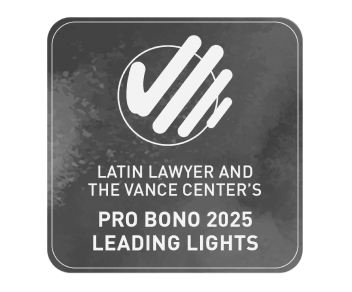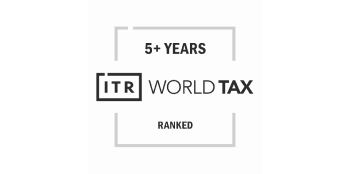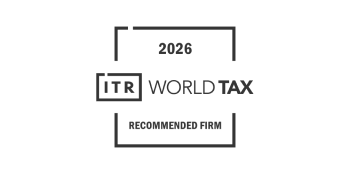


On January 21, 2025, the Official Gazette of the Federation published the “Decree Granting Tax Incentives to Support the National Strategy Called “Plan Mexico”, to Promote New Investments, Encourage Dual Training Programs, and Foster Innovation” (the “Decree”). The Decree aims to promote investment in fixed assets and promote training and technological innovation.
General Considerations
The Decree establishes a series of tax incentives for taxpayers under Title II (General Regime for Legal Entities), Section I of Chapter II of Title IV (Individuals with Business and Professional Activities), and Chapter XII of Title VII (Simplified Trust Regime for Legal Entities) of the Income Tax Law (“ITL”). Such incentives include the following:
Immediate Deduction of Investments in New Fixed Assets
The Decree provides a tax incentive for the immediate deduction of investments in new fixed assets. This applies exclusively to assets acquired from the effective date of the Decree—January 22, 2025—until September 30, 2030.
The immediate deduction rates range between 35% and 91%, depending on the type of asset and the economic activity in which they are used. Additionally, there are two periods for applying these rates: one for the 2025 and 2026 fiscal years and another for the 2027 to 2030 fiscal years, with higher rates applicable in the first period.
As an additional requirement, acquired assets must remain in use for a minimum of two fiscal years following the fiscal year in which the deduction is applied. Certain assets, such as office furniture, internal combustion vehicles, and airplanes not used in agricultural activities, are specifically excluded.
For these purposes, new fixed assets are defined as those being used in Mexico for the first time.
Additional Deduction for Training Expenses
The Decree includes an additional tax incentive applicable in annual tax returns from 2025 to 2030. It allows for an additional deduction of 25% of the increase in expenses incurred for worker training or technological innovation.
This increase is calculated as the positive difference between expenses for the current fiscal year and the average expenses for these purposes over the previous three fiscal years, even if no such expenses were recorded in one or more of those years.
Training must focus on technical or scientific knowledge related to the taxpayer’s activity and must be provided exclusively to workers registered with the Mexican Social Security Institute (“IMSS”, as per its acronym in Spanish).
Expenses related to innovation must be related to investment projects promoting the development of inventions, obtaining patents, or securing initial certifications for integration into local or regional supply chains.
Taxpayers must maintain detailed records of these expenses and apply them within the corresponding fiscal year, as failing to do so will result in the loss of the right to the deduction in subsequent years.
General Requirements
To obtain the tax incentives provided in the Decree, taxpayers must meet several requirements, including:
I. Being registered in the Federal Taxpayer Registry (“RFC”, as per its acronym in Spanish), having an active electronic tax mailbox, and obtaining a favorable tax compliance opinion.
II. Submitting the investment project, the collaboration agreement signed with the Ministry of Public Education for dual education, or the investment project for inventions or initial certification, as applicable.
III. Obtaining a compliance certificate issued by the Evaluation Committee, indicating the project has been approved, and adhering to the guidelines to be published by the committee.
IV. Not being included in the situations outlined in Articles 69, 69-B, and 69-B Bis1 of the Federal Fiscal Code (“FFC”) or having shareholders in any of the circumstances described in Article 69-B of the FFC. They must also not be subject to temporary restrictions on the use of digital seal certificates or have had certificates canceled.
The Decree does not apply to taxpayers benefiting from the incentives under the “Decree Granting Tax Incentives to Key Sectors of the Export Industry,” published on October 11, 2023 (the “2023 Decree”). Furthermore, the Decree renders the 2023 Decree null and void as of its effective date.
However, taxpayers applying benefits under the 2023 Decree as of the effective date of the Decree may continue to do so until those benefits expire under the originally established terms and conditions.
Validity and Budgetary Control
The Decree allocates a maximum of 30,000 million pesos (approximately USD 1,450 million) for the application of these tax incentives during its validity period. Of this amount, 28,500 million pesos (approximately USD 1,370 million) are designated for the immediate deduction of fixed asset investments, and 1,500 million pesos (approximately USD 73 million) are allocated to the additional deduction for training and innovation.
Additionally, a minimum of 1,000 million pesos (approximately USD 48 million) is exclusively allocated to taxpayers with annual revenues not exceeding 100 million pesos (approximately USD 4.8 million).
Additional Considerations
Taxpayers intending to apply the incentives under the Decree must maintain specific records supporting investments made, training programs implemented, and innovation projects developed.
Failure to comply with the established requirements will result in the revocation of granted incentives and the obligation to pay taxes, inflationary adjustments, and surcharges as applicable.
The Evaluation Committee, comprising representatives from the Ministry of Finance and Public Credit, the Ministry of Economy, and the Advisory Council for Regional Economic Development and Nearshoring, will issue specific guidelines for the proper application of the Decree’s tax incentives. These guidelines must be published no later than 60 calendar days after the Decree’s effective date.
Additionally, the Tax Administration Service may issue general rules to ensure the correct application of the Decree.
Our Tax Practice is well-equipped to assist clients with any matters related to the application of the Decree. Should you have any questions or comments, please feel free to contact us.
The full text of the Decree can be found here.
1 Articles 69, 69-B, and 69-B Bis of the FFC outline various circumstances under which taxpayers may be subject to specific conditions, such as: (i) having firm or enforceable tax liabilities; (ii) being deemed "non-locatable" by tax authorities; (iii) having been convicted by a final judgment for committing a tax-related offense; (iv) having received waivers for the payment of taxes; (v) having used false or fraudulent tax invoices; or (vi) having improperly transferred tax losses, among other scenarios.
Awards














